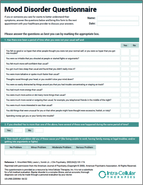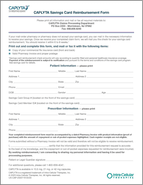
Helpful ToolsKEEP YOUR LYTE GOING with resources and tips
We believe that knowledge is empowering. That's why we want to provide you with facts, helpful tips, and inspiration that can help you better take care of yourself.
Actor portrayals.
Download helpful resources

Interested in learning more about CAPLYTA?
Use this patient brochure to see how CAPLYTA could help you rise above the lows of bipolar depression and let in the LYTE.
- Print or download this form
- Review the content on your own or with your healthcare provider
- Come prepared with any questions to the next appointment with your healthcare provider
Download the brochure:
Download the Patient Brochure
Want help understanding your symptoms?
Discussing your symptoms with your healthcare provider is a great first step in learning if you might have bipolar disorder. To help start the conversation:
- Print or download this form
- Record your answers
- Bring it to the next appointment with your healthcare provider. Only they can provide a diagnosis. This questionnaire is not a diagnostic tool

Ready to talk to your healthcare provider?
Prepare yourself for a conversation about CAPLYTA with information and questions.

Pharmacy can't take your Savings Card?
Simply fill out the Savings Card Reimbursement Form and mail or fax it in along with:
- A copy of your commercial Rx insurance card (front and back)
- A valid pharmacy invoice and proper postage
Tell Us
your caplyta storyyour caplytastory
If you've taken CAPLYTA and want to share your story, contact us:
Discover these lifestyle tips
In addition to taking CAPLYTA, here are a few things you can do to help you rise above the lows of bipolar depression.
- Look forward to what's ahead. Make a list of things you'd like to do.
- Talk to friends and family. Loved ones would love to hear from you and may enjoy doing some of the things you want to do too.
- Keep a sleep schedule. Going to sleep at the same time each night may help with maintaining a daily routine.
- Stay active. From taking a walk to joining a gym, exercise may help you feel better physically and emotionally.
- Eat well. A healthy diet is not only good for your physical health, but may also support your mental well-being.
- Keep track of your moods. Each day is different, so it's important to note how you feel and what made you feel that way.
- Reach out when you need to. Your healthcare provider can help with creating a treatment plan that works best for you.
You can also explore organizations that offer support and education.
Learn More